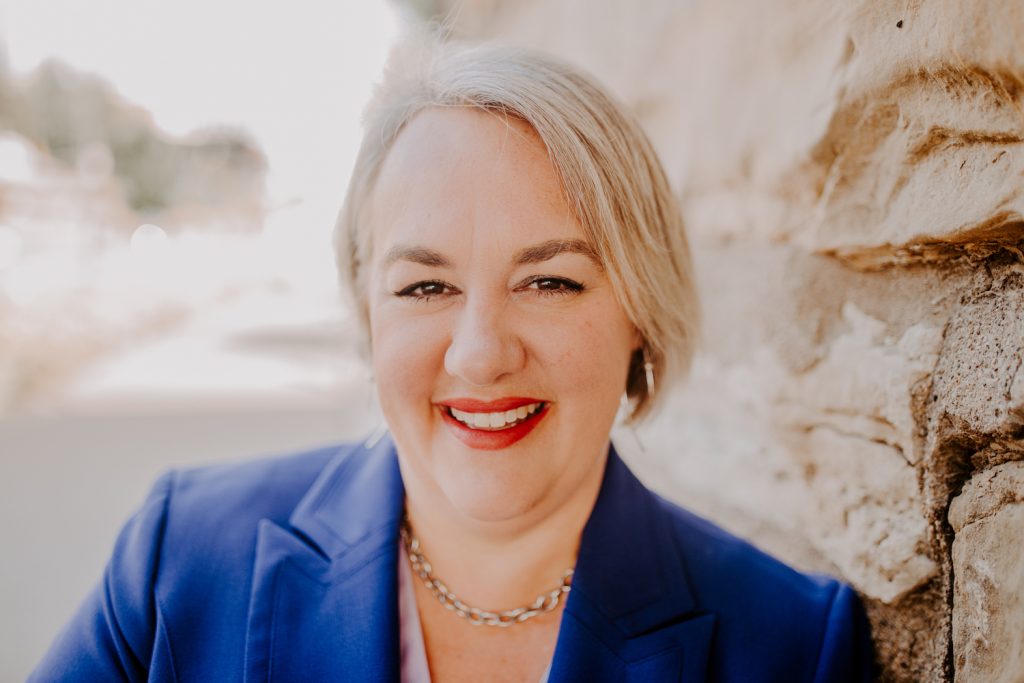“Why are there not more women in senior leadership positions?” That’s a question that has driven Melinda Hubbard, DBA ’18, for much of her career. The question also led Hubbard to pursue a Doctor of Business Administration (DBA) at Temple University’s Fox School of Business and even became the impetus behind her dissertation, “Where are the Women?: An Investigation Into Why Women are Not Attaining Top Leadership Positions Within the Financial Services Industry.”
“I was noticing, as a leader in corporate America, you have to make decisions, really fast and you are dealing with limited data,” says Hubbard. “I’m a bit addicted to formal education and I was really interested in slowing down.”
Hubbard worked in corporate America for about 20 years. Most of her time was spent in financial services, most recently as the vice president of insurance operations support at Ohio National Financial Services.
Due to the challenges she faced in the corporate world, Hubbard was inspired to pursue the question that had been driving her for years: why were women finding it difficult to achieve leadership positions in corporate America?
“When I went into this qualitative research, I interviewed about 25 women about the challenges they faced in the workplace,” says Hubbard. “The main conflict was between work and family. They also talked about dealing with ambiguity in the workplace and harassment they have faced.”
She emphasized how some businesses only see women as caretakers, making them less loyal to the company they work for. The identities of men at the firm were more complex— fathers and providers who were seen as more dedicated to the firm. Salary data supported the idea.
Many of the women Hubbard spoke to noted that when they were offered promotions or new job opportunities, they turned them down due to family-work conflicts.
“I spoke to a woman from rural Kentucky, where her climb up the ladder was delayed because her husband wanted dinner on the table at 5:30 p.m. and she had to be home,” says Hubbard.
She noted how some women interviewed told stories of harassment which were extremely alarming. “A senior executive once asked a frontline manager who was a young woman, what color underwear she was wearing that night,” says Hubbard. “There’s also a story of a guy saying, ‘you look like you need a back rub’, or ‘come sit on my lap.’ This still happens today.”
Her research also looked into ambiguity and how women struggle to understand what it takes to get ahead. “I attribute ambiguity to the research and conversations I’ve had with women about the lack of networking and not knowing how to get a promotion,” says Hubbard. “We don’t have as big networks or if we do, they’re social in nature. Whereas men are more confident and don’t face the ambiguity of not knowing how they are going to get promoted.”
Through her dissertation, Hubbard hopes to promote change by bringing attention to the fact that harassment still exists in the workplace. The secondary goal of her research is to also help women navigate the complex corporate world and advocate for family-friendly practices and work flexibility.
“All the stories that I gather, nobody had reported a single incident [of harassment] and it’s because they just felt unsafe,” says Hubbard. “I’m hoping that the research I do allows people to look at these challenges and create environments that are easier for women to be on the same footing as men.”
The main barriers to women’s success were concluded to be work-family conflict, ambiguity and harassment. Prior to the COVID-19 pandemic, Hubbard would present her findings at public speaking events, often targeted toward women in corporate America.
Hubbard’s research and education also helped ignite a new passion for teaching. She first attained an adjunct position and then landed a full-time teaching job at Ball State University last year. Through this new career path, she became interested in women who leave corporate positions, but not the workforce. These women move to careers in education and nonprofits that allow them greater flexibility and support.
“Ultimately, what I want is women to be at the top of organizations. All the data says that women’s leadership style matches the styles that are most successful out there for corporations,” says Hubbard.
